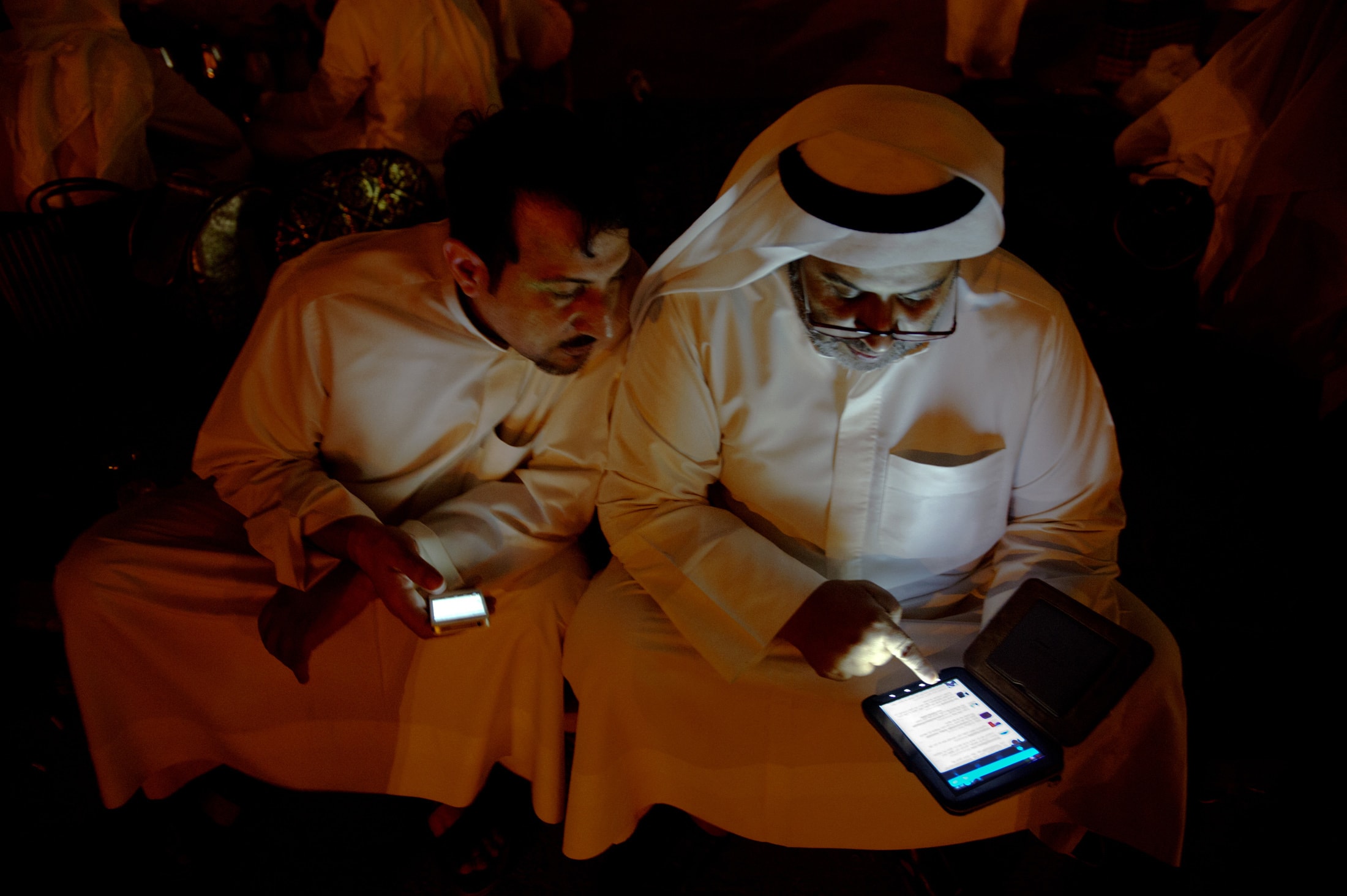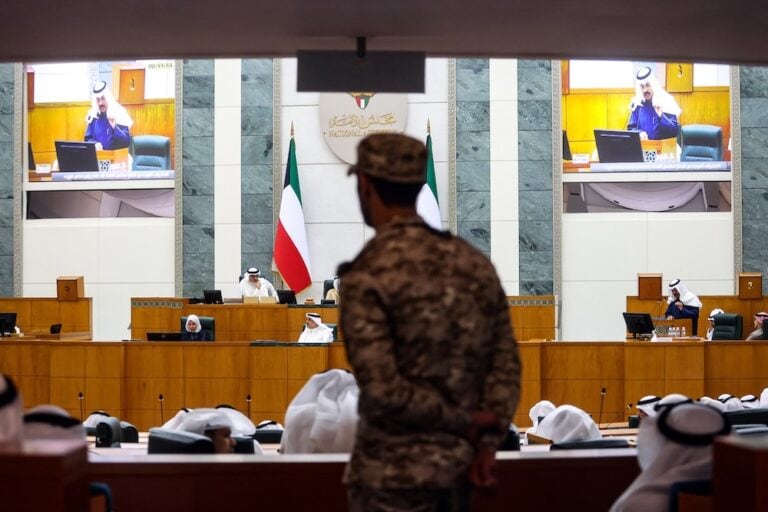Articles 6 and 7 of the new law expand the reach of existing prohibitions on print publications to virtually all dissemination of information through the Internet, including online journalism and private use of social media and blogs.
This statement was originally published on hrw.org on 22 July 2015.
Kuwait’s new cybercrime law includes far-reaching restrictions on Internet-based speech that breach Kuwait’s obligations under international human rights law, Human Rights Watch said today. The National Assembly, which approved the law on June 16, 2015, should amend the law to remove these provisions.
The Cybercrime Law establishes criminal penalties for offenses such as hacking electronic systems and retrieving personal data without authorization, as well as fraud, publishing pornography, and engaging in human trafficking via the Internet. However, articles 6 and 7 also expand the reach of existing prohibitions on print publications to virtually all dissemination of information through the Internet, including online journalism and private use of social media and blogs.
“This new law comes at a time when Kuwait is prosecuting many opposition politicians and activists, journalists, and other government critics using expansive interpretations of moral imperatives and national security requirements,” said Sarah Leah Whitson, Middle East director. “It appears designed to allow the authorities even wider legal latitude to curtail Kuwaitis’ right to free speech.”
On June 22, Yaqoub al-Sane, Kuwait’s minister of justice, told media sources that the law was aimed at “preserving social stability” and only applied to individuals who run networks designed to publish pornography or offend others. “Everybody has the right to use mobile devices without being monitored,” he said. Yet, the wording of the law contradicts that assurance. Although the law does not provide authorities with additional monitoring powers, it creates a host of new criminal offenses likely to lead authorities to increase their use of existing investigative powers.
Article 6 imposes prison sentences and fines for insulting religion and religious figures, and for criticizing the emir over the Internet. These crimes, which already exist under Kuwait’s Printing and Publishing Law of 2006, appear to violate international law. Article 6 also prohibits Internet-based statements deemed to criticize the judicial system or harm Kuwait’s relations with other states, or that publicize classified information, without exceptions for disclosures in the public interest.
Article 7 imposes a punishment of up to 10 years in prison for using the Internet to “overthrow the ruling regime in the country when this instigation included an enticement to change the system by force or through illegal means, or by urging to use force to change the social and economic system that exists in the country, or to adopt creeds that aim at destroying the basic statutes of Kuwait through illegal means.”
The law empowers the authorities to close all outlets or locations in which these crimes are committed for one year and confiscate devices used in committing them.
The International Covenant on Civil and Political Rights (ICCPR), which Kuwait has ratified, guarantees the right to freedom of expression. It allows governments to restrict expression on certain, specific grounds, such as the “protection of national security or of public order, or of public health or morals,” but only when restrictions are absolutely necessary and strictly proportionate to the risk of harm to those interests. The cybercrime law’s vague provisions surpass these conditions and the law allows prosecutions for political speech that is subject to particular safeguards under the ICCPR.
Kuwait was once viewed widely as the Gulf country most tolerant of free speech. But since a political crisis triggered mass protests and ultimately the resignation of the government in 2011, Kuwaiti officials have repeatedly invoked vaguely worded provisions of the penal code and the national security law to suppress free speech.
Both contain provisions that criminalize “insult,” and prosecutors have used them to charge activists, journalists, bloggers, and others for engaging in political or social commentary. Under article 4 of the national security law of 1970, anyone convicted of “committing a hostile act against a foreign country that disrupts Kuwait’s political relations with that country or exposes Kuwait to a risk of war” could face at least three years in prison. Since January 2015, authorities have charged at least six people under this provision for tweets deemed critical of Saudi Arabia.
Article 25 of the national security law provides for sentences of up to five years in prison for anyone who publicly insults the emir or “mocks God, the prophets and messengers, or the honor of his messengers and their wives.” Since January 2011, the authorities have brought prosecutions under these and other articles against at least 63 people who expressed critical views on Twitter, Facebook, blogs, other social media platforms, and at protests. The United Nations Human Rights Committee, which oversees state implementation of the ICCPR, has commented that heads of government are legitimately subject to criticism and political opposition. It has also said that blasphemy laws are prohibited unless clearly restricted to statements advocating religious hatred that incite to violence or discrimination.
As a state party to the ICCPR and the Arab Charter on Human Rights, Kuwait is required to protect the rights to freedom of opinion and expression. Article 36 of Kuwait’s constitution also guarantees freedom of opinion and expression.
“Kuwait’s reputation as a relatively rights-friendly Gulf state has taken a nosedive in recent years and this new cybercrime law will only steepen the downward trajectory,” Whitson said. “The parliament should promptly amend the law to remove its problematic provisions and uphold the right to free speech.”
To read Human Rights Watch’s key concerns and recommendations, click here.



